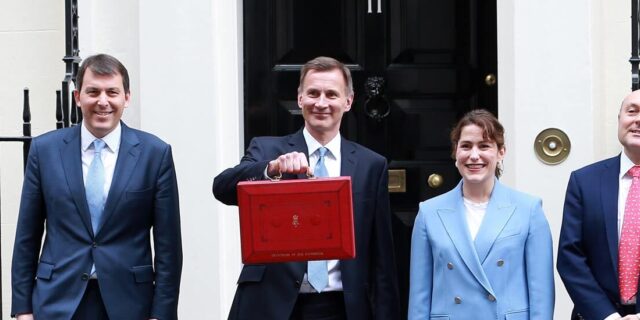What does the Spring Budget mean for your pension?
16 March 2023
On Wednesday 15th March, Chancellor Jeremy Hunt delivered his Spring Budget, which included the biggest shake-up in the taxation of pensions for over a decade. The Lifetime Allowance is being abolished altogether and the Annual Allowance is being increased by 50%.
In simple terms, these changes will enable people to save more before they get hit with a tax charge.
What are the Lifetime and Annual Allowance?
The Lifetime Allowance sets the total value of all the pension savings you can build up before having to pay extra tax. It currently stands at £1.073 million and had been expected to stay at that level until 2026, but from April 2023 if your pension savings exceed the Lifetime Allowance you will not be liable to pay the extra tax charge.
The Annual Allowance limits the amount you can pay into your pensions in a tax year without having to pay an additional tax charge. It’s being increased from £40,000 to £60,000.
There’s a third limit, the Money Purchase Annual Allowance, which limits how much you can pay into your defined contribution pensions in a situation where you’ve already started taking some of benefits from them. It’s going up from £4,000 to £10,000.
Will these changes affect you?
The Lifetime Allowance and Annual Allowance are only expected to be a factor for a minority of people. Most UK pension savers are unlikely to hit the Lifetime Allowance and don’t typically use up their full Annual Allowance each year.
But, for those with substantial pension savings there will now be greater scope for them to continue to save for their retirement. The increase to the Money Purchase Annual Allowance will also enable those, who plan to access some of their retirement savings whilst continuing to work, to contribute more to the retirement savings going forward.
The Lifetime Allowance also limits the amount of cash you can take from your pension savings tax-free. This limit will remain, so the maximum tax-free Pension Commencement Lump Sum you can receive will continue to be the lesser of 25% of the value of your pension savings or £268,275 (25% of the current Lifetime Allowance).
What about the State Pension?
Every year the State Pension is reviewed to take account of inflation, and new figures are announced. From April 2023, payments will be:
- £203.85 a week (up from £185.15) for the full, new flat-rate State Pension (for those who reached State Pension age after April 2016)
- £156.20 a week (up from £141.85) for the full, old Basic State Pension (for those who reached State Pension age before April 2016)
As ever, if you’re making decisions about your financial future, we recommend getting independent help and advice. MoneyHelper is an excellent place to start. It can also help you to find an authorised independent financial adviser (IFA) in your area.



